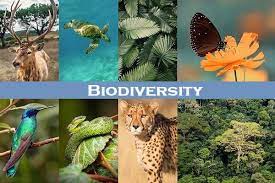The connection of our natural world is often overlooked, but it is essential to understand that every living organism plays a vital role in maintaining a healthy ecosystem. For instance, forests provide a habitat for animals, and animals consume plants that rely on healthy soil, which is fertilized by fungi. Bees and other insects facilitate the reproduction of plants by carrying pollen from one plant to another. The loss of any species, be it plant or animal, can weaken the connections within an ecosystem and negatively impact its performance.
The oceans are an important part of our planet that covers more than 70% of the Earth’s surface. It plays a significant role in our ecosystem by mitigating the effects of global warming by absorbing 90% of the heat caused by increasing greenhouse gases and 30% of the carbon dioxide released into the atmosphere. The ocean’s potential to function as a giant carbon sink rests on its rich biodiversity. Mangrove forests, for instance, can store up to four times more carbon per hectare than most other tropical forests around the world, while seagrass sediment is one of the most efficient carbon stores on the planet. Additionally, emerging evidence suggests that carbon is stored in the bodies of marine animals. Corals, mangroves, and seagrass ecosystems are essential breeding grounds for numerous diversity of marine animals that keep the ocean functioning well and productive.
The layer of living organisms that inhabit our land and oceans is incredibly complex, dynamic, and essential to global food production and human well-being. The diversity of plants, animals, and microbes, along with their environment, has been used and preserved by farmers and communities for centuries and remains crucial to the livelihood strategies of small-scale farmers worldwide.
Human activities such as unsustainable farming practices and urbanization are taking a toll on our natural resources, causing dramatic changes and losses in biodiversity. If left unchecked, the alarming pace of biodiversity loss will have devastating consequences for humankind. Currently, millions of people suffer from chronic hunger, malnutrition, and obesity. Conserving biodiversity, reducing pressure on natural resources and ecosystems, and mitigating the uncertainties associated with climate change are crucial to our survival, health, and diets.
